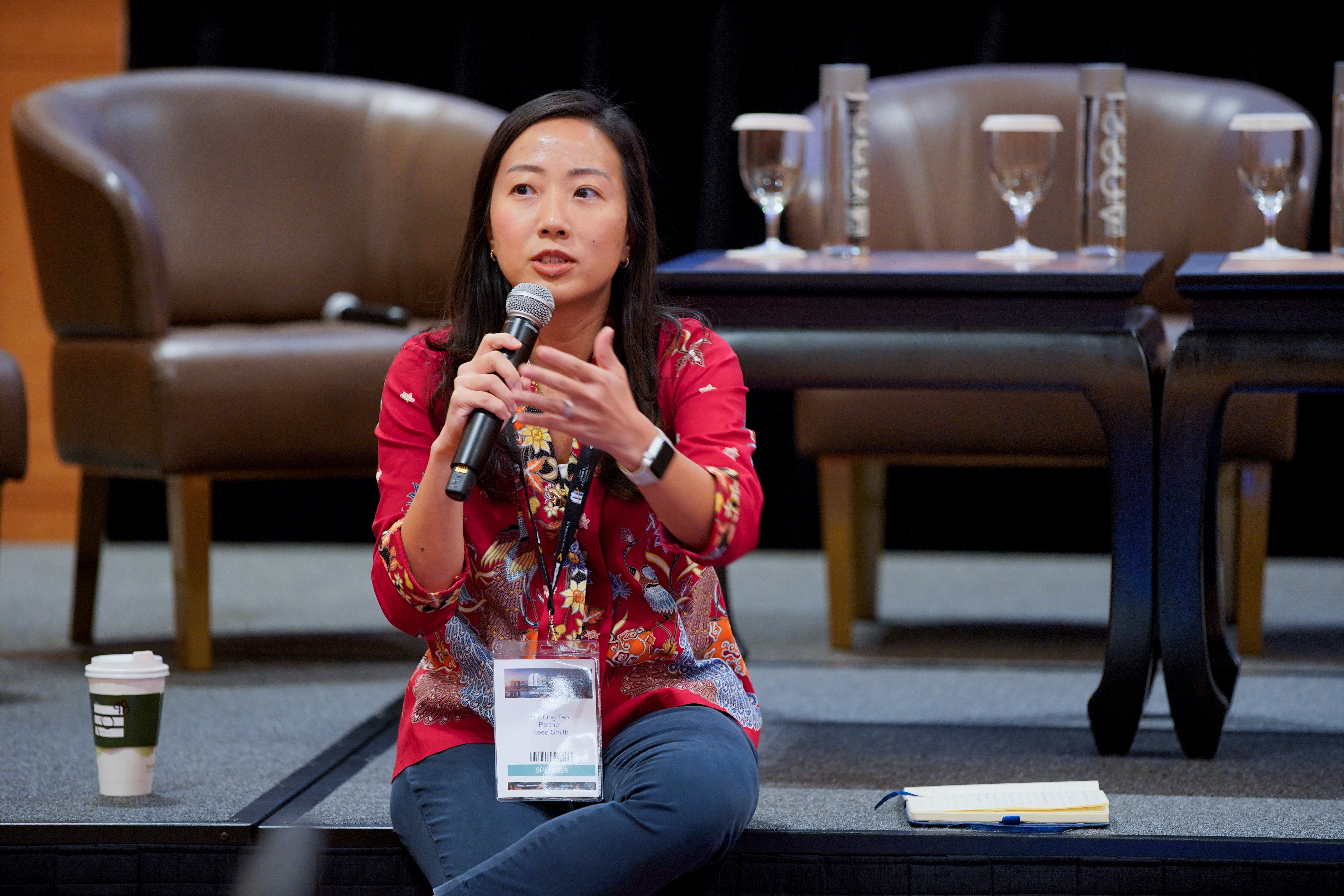Click Here to View This Page on Production Frontend
Click Here to Export Node Content
Click Here to View Printer-Friendly Version (Raw Backend)
Note: front-end display has links to styled print versions.
Content Node ID: 420168
The potential for new advanced air mobility (AAM) services to transform public transportation networks in Asia was the focus of last week’s Global Urban & Advanced Air Summit in Singapore. Top of the first day’s agenda was a presentation by Hui Ling Teo, a partner at the Singapore branch of Reed Smith law firm, underscoring the critical need for what she described as climate-resilient infrastructure in the Association of Southeast Asian Nations (ASEAN). The group consists of 10 countries across Southeast Asia, including Brunei, Cambodia, Indonesia, Laos, Malaysia, the Philippines, Singapore, Thailand and Vietnam.
“The AAM [advanced air mobility] sector is a really pivotal and important sector for the entire transportation and infrastructure industries because it is a unique moment where we are able to redesign what a circular economy means and what sustainable infrastructure will look like. When you combine these two themes, infrastructure, and sustainability, you then come to realize that there are opportunities that you wouldn’t have normally seen if you look at them separately.”
Speaking to AIN, Teo explained that addressing climate change is key to the successful development and integration of air mobility solutions into urban environments. Despite this, there is a growing movement within the industry to distance itself from sustainability amid concerns over greenwashing and litigation risks. “AAM has been focused on applications for urban mobility, but we need to think broader than that, including infrastructure and the needs of ASEAN infrastructure, she said. “Climate change will be affecting and damaging physical assets, the built environment, and infrastructure. Technological advancements and digital solutions developed for the AAM industry are well positioned to support preventive and adaptive measures in maintaining and further developing infrastructure in ASEAN, much like helicopters but in a more cost-effective and sustainable way.”
Teo’s comments on September 26 were made against a backdrop of mounting concern in the region about climate change dangers to the region's population. A day earlier, a day after a 6.0-magnitude earthquake struck Balut Island in the Philippines. On September 12, a magnitude-6.3 earthquake occurred in the Luzon Strait near the Babuyan Islands. So far, the country has registered 40 earthquakes with a magnitude of 4.0 during the month of September, according to the Philippine Institute of Volcanology and Seismology.
Reed Smith focuses on transportation and sustainability and has access to different investment channels, such as venture capital, private equity, private credit, traditional banks, and neobanks. According to Teo, “That confluence of capability is exactly what the AAM sector requires. There are real needs that occur in the world; our firm factors in climate change in AAM and has been delivering legal counsel and expertise within the realm of uncrewed aircraft systems and eVTOL vehicles since 2015.”
